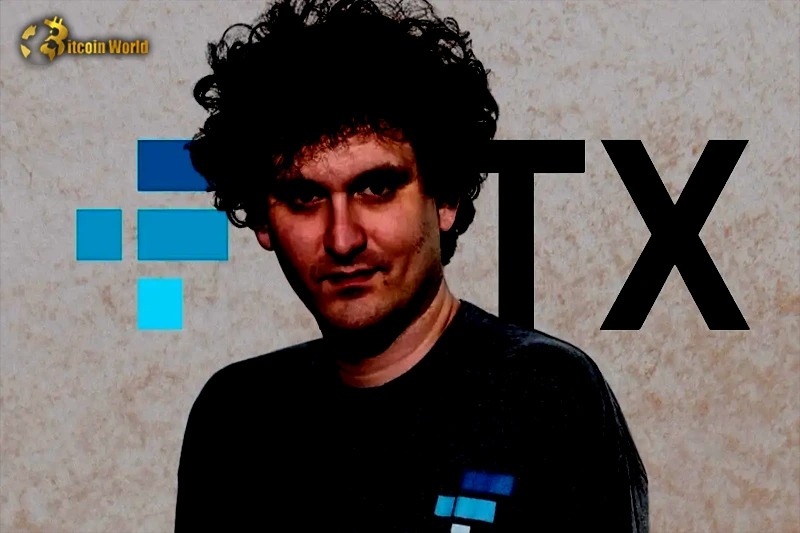The Sam Bankman-Fried (SBF) trial continues to unfold, and the latest development is a move by United States prosecutors that could significantly shape the defense’s strategy. They’ve officially requested the court to prevent SBF’s legal team from bringing up arguments about the potential recovery of FTX customer assets tied to the AI startup, Anthropic. Let’s dive into what this means and why it’s a crucial point in the ongoing legal battle.
Why is Anthropic Investment Suddenly a Hot Topic?
Remember when Sam Bankman-Fried’s FTX made waves in the crypto world? Well, in April 2022, FTX, under SBF’s leadership, invested a whopping $500 million in Anthropic, an artificial intelligence company. Now, Anthropic is making headlines again, but this time it’s not just about AI breakthroughs. The company is potentially looking at a valuation between $20–$30 billion as giants like Amazon and Google express interest in investing. This surge in valuation means SBF’s initial investment could be worth significantly more today.

Here’s the twist: prosecutors are arguing that the money used for the Anthropic investment wasn’t just any funds – it was allegedly customer deposits from FTX. This is at the heart of the fraud charges against Bankman-Fried.
What are Prosecutors Trying to Block?
According to a letter submitted to Judge Lewis Kaplan, SBF’s defense team intends to present evidence regarding the current value of the Anthropic investment. The apparent strategy? To suggest that this increased value could potentially compensate FTX customers and creditors who suffered losses when the exchange collapsed.
However, prosecutors are vehemently opposing this line of argument. They believe it’s a distraction and irrelevant to the core charges. Here’s why they want to block it:
- Irrelevance to Wire Fraud Charges: The indictment against SBF centers on allegations of wire fraud – specifically, using customer deposits for investments and expenditures. Prosecutors argue that whether those investments turned out to be profitable or not is immaterial to the fact that customer funds were allegedly misappropriated in the first place.
- Potential for Jury Confusion and Prejudice: Bringing up the potential Anthropic recovery, prosecutors argue, could mislead the jury into thinking that if victims *could* be compensated in the future, then the initial alleged wrongdoing is somehow less serious. They state this evidence would be “wholly irrelevant, and present a substantial danger of unfair prejudice, confusing the issues, misleading the jury, undue delay, and waste of time.”
- Focus on Misappropriation, Not Ultimate Losses: The government’s case is about demonstrating the alleged misappropriation of funds and the resulting losses on FTX’s balance sheet. They are not focusing on the final outcome of the FTX bankruptcy process or potential recoveries.
Why Would the Defense Want to Talk About Anthropic?
From the defense’s perspective, highlighting the Anthropic investment serves a clear purpose: to paint a picture where there’s a potential silver lining for FTX victims. By showcasing a valuable asset that originated from FTX funds, they might be trying to argue:
- Mitigation of Damages: Even if customer funds were used for the Anthropic investment, the potential for recovery lessens the impact of the alleged crime. It suggests a pathway to restitution, even if it’s after the fact.
- Shifting the Narrative: The defense might be trying to shift the narrative from one of complete loss and irreversible damage to one where there’s still hope for recovery. This could influence the jury’s perception of SBF’s intent and the severity of his actions.
The Judge’s Stance – What to Expect?
Judge Lewis Kaplan will ultimately decide whether to allow or block the Anthropic argument. Given the prosecutors’ strong objections and the legal arguments around relevance and potential jury confusion, it’s uncertain how the judge will rule. However, the prosecution’s request indicates a firm stance against allowing the trial to deviate from the core charges of fraud.
What Does This Mean for FTX Customers and the Trial?
This legal maneuvering has several implications:
- Focus on Core Charges: If the judge sides with the prosecution, the trial will likely remain tightly focused on the alleged wire fraud and misappropriation of customer funds. The jury will primarily consider whether SBF engaged in these actions, not the potential for future recoveries.
- Complexity vs. Clarity: Blocking the Anthropic argument could simplify the trial, preventing it from getting bogged down in complex financial details about asset valuations and bankruptcy proceedings. This could make the case clearer for the jury.
- Uncertainty for Asset Recovery: Regardless of whether the Anthropic investment is discussed in the trial, the question of asset recovery for FTX customers remains complex and ongoing through the FTX bankruptcy process. The trial’s outcome won’t directly dictate the success or failure of these recovery efforts.
In Conclusion: A Battle Over Trial Focus
The prosecution’s move to block arguments about the Anthropic investment underscores a crucial aspect of the Sam Bankman-Fried trial: the battle over narrative and focus. Prosecutors want to keep the jury’s attention squarely on the alleged fraud, while the defense seems to be looking for avenues to introduce mitigating factors and potential pathways to restitution. Whether the Anthropic investment becomes a point of discussion in court will be a key decision that could influence the trajectory of this high-profile trial and, indirectly, the hopes of FTX customers seeking to recover their funds. Stay tuned as the trial progresses and more details emerge from the courtroom, where Cointelegraph journalist Ana Paula Pereira is providing on-the-ground coverage from New York. You can catch up on the first week of the trial here to understand the foundational arguments being laid out.
Disclaimer: The information provided is not trading advice, Bitcoinworld.co.in holds no liability for any investments made based on the information provided on this page. We strongly recommend independent research and/or consultation with a qualified professional before making any investment decisions.




